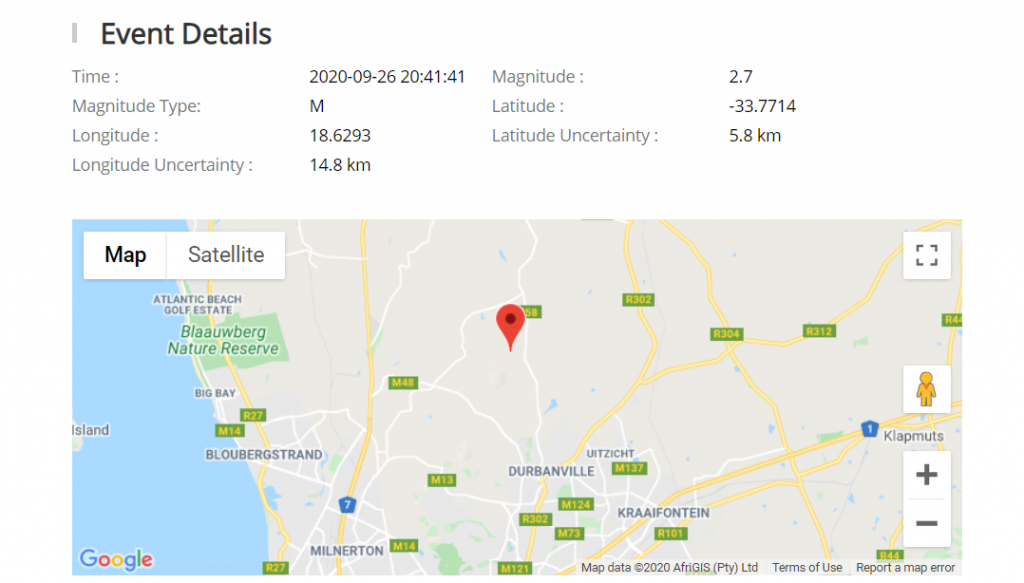South Africa’s retail forex industry is entering a decisive phase as regulation tightens and consolidation accelerates. What does it mean for brokers and traders?
Cause of Cape Town earthquakes unknown – where to follow updates online

The South African Council for Geoscience has said that the small earthquakes in Cape Town do not appear to be related to the offshore quake — with the epicenter located north of Durbanville.
Residents in certain areas of Cape Town experienced an earthquake on the evening of Saturday, 26 September. This was followed by two more smaller earthquakes on the morning of Sunday, 27 September.
The tremors were initially chalked up to an earthquake that occurred south of the African continent on Saturday evening.
However, the Council for Geoscience says that this does not appear to be the case.
“It does not seem to be related to the earthquake that occurred at 19:10 off the coast of South Africa,” the council said in a media statement.
Statement of the recent seismic event that occurred in the Western cape area. pic.twitter.com/HSHAv0KhiF
— CGS (@CGS_RSA) September 26, 2020
According to the council, the initial earthquake registered a preliminary 2.5 on the local magnitude scale.
The second quake registered a preliminary 2.3 on the local magnitude scale.
“The epicentre was located around 5-6 kilometres north of Durbanville,” the council said in a statement on Sunday.
“Reports have been coming in from residents in the Cape Town area who have felt the tremors although not as widespread as last night’s. These events might be related as they seem to occur in the same area,” it added.
Statement of a second seismic event that occurred in the Western Cape this morning. pic.twitter.com/Ga6R7ZyrlP
— CGS (@CGS_RSA) September 27, 2020
At the time of writing, the council had issued no further updates on its social channels or website.
How to keep track of earthquakes and tremors in Cape Town and South Africa
The cause of the quake has yet to be identified. But the council urged people not to panic.
It added that you can keep track of seismic events in South Africa on its website.
The listed events include a summary of recent seismic events and their location. You can view the event on a map as well.
You can also follow the council on Facebook and Twitter for updates.
Feature image: Screenshot/Council for Geoscience


